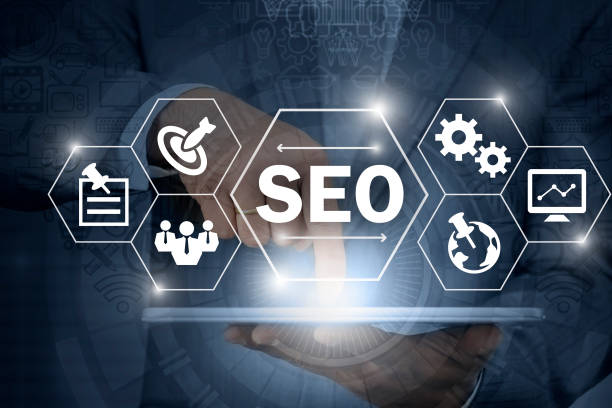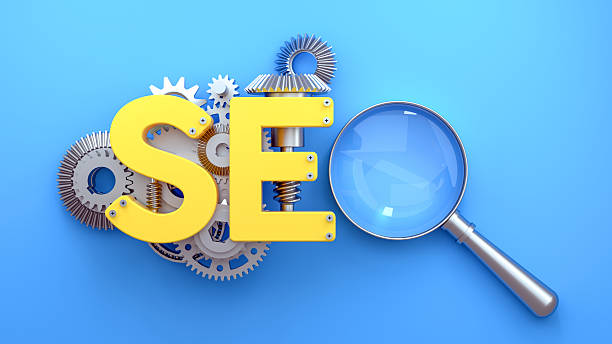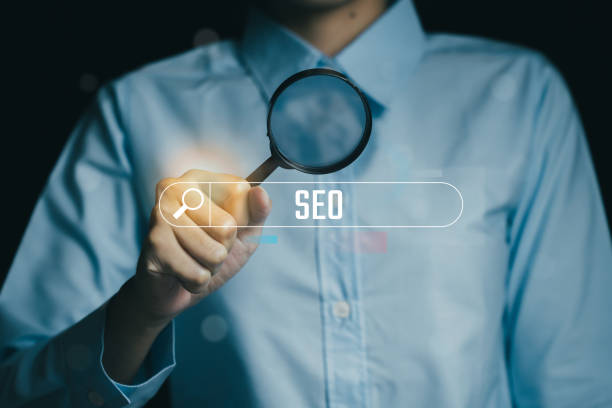What is Technical SEO and Why is it Important?

What is Technical SEO and Why is it Important?
Technical SEO refers to a set of activities that are carried out to improve the crawlability and indexability of a website by search engines.
In other words, technical SEO ensures that search engines like Google can easily find your website, understand its content, and rank it correctly in search results.
The importance of #technical SEO stems from the fact that without a strong technical infrastructure, your efforts in content production and link building may be wasted.
A website with serious technical problems, even with excellent content, has little chance of achieving high rankings in Google.
In fact, technical SEO acts as a foundation for other aspects of SEO.
For example, if your website is not indexed correctly, Google cannot see your content, and as a result, ranking it will be impossible.
Also, slow website speed and problems with the URL structure can affect the user experience and reduce conversion rates.
Therefore, investing in technical SEO is a necessity for long-term success in the online world.
To better understand this issue, you can refer to reputable articles on Technical SEO on Moz.
Did you know that 94% of users’ first impressions of a business are related to its website design? With professional corporate website design by **Rasaweb**, turn this first impression into an opportunity for growth.
✅ Attract more customers and increase sales
✅ Create credibility and trust in the eyes of the audience⚡ Get free website design consultation!
Reviewing and Improving Website Crawlability

Reviewing and Improving Website Crawlability
Crawlability refers to the ability of search engines to access and navigate the different pages of your website.
To ensure that Google can easily crawl your website, you need to use several tools and techniques.
Firstly, check the robots.txt file to make sure that no important pages have been accidentally blocked.
Secondly, submit your XML sitemap to Google to provide Google with the complete structure of your website.
Thirdly, design the URL structure of your website in a way that is understandable and logical for search engines.
Avoid using long and complex URLs and instead use short and descriptive URLs.
Also, internal links play an important role in the crawlability of your website.
Make sure that the different pages of your website are linked to each other so that search engines can easily navigate between them.
To test the crawlability of your website, you can use tools like Google Search Console and Screaming Frog.
These tools help you identify and fix problems related to crawlability.
For more information, you can refer to the Crawling and Indexing in Google guide.
Optimizing Indexability to Increase Visits

Optimizing Indexability to Increase Visits
Indexability refers to the ability of search engines to store and display the pages of your website in search results.
To ensure that your website pages are indexed correctly, you need to consider several factors.
Firstly, use the noindex and nofollow tags correctly.
These tags tell search engines which pages they should not index or follow their links.
Secondly, avoid duplicate content.
If you have multiple pages with similar content, use the canonical tag to tell Google which page is the original version.
Thirdly, optimize the loading speed of your website pages.
Pages with low loading speeds may not be indexed by Google.
Also, using structured data can help Google better understand your content and display it in a more attractive way in search results.
To check the indexing status of your website pages, you can use Google Search Console.
This tool shows you which pages have been indexed and which pages have problems.
Finally, paying attention to on-page SEO can also help improve the indexability of your website.
| Factor | Description |
|---|---|
| noindex tag | Prevent page indexing |
| canonical tag | Specify the original page if there is duplicate content |
| Loading speed | Optimize page loading speed |
| Structured data | Use structured data to better understand content |
The Importance of Website Speed in SEO

The Importance of Website Speed in SEO
Website speed is an important factor in SEO that has a direct impact on user experience and ranking in search results.
A website with high speed not only keeps users satisfied but also shows search engines that your website is worth indexing and ranking.
Google has officially announced that website speed is a ranking factor, and websites with higher speeds have a better chance of achieving high rankings.
To improve your website speed, you can use several techniques.
Firstly, optimize your website images.
Large and high-quality images can significantly reduce page loading speed.
Secondly, use cache to ensure that your website pages load quickly in users’ browsers.
Thirdly, use a CDN (Content Delivery Network) to store your website content on different servers around the world and deliver it quickly to users.
Also, code optimization and reducing the number of HTTP requests can also help improve your website speed.
To test your website speed, you can use tools like Google PageSpeed Insights and GTmetrix.
These tools show you which parts of your website need improvement.
Did you know that a weak corporate website takes away many opportunities from you every day? Solve this problem forever with professional corporate website design by Rasaweb!
✅ Create a powerful and trustworthy image of your brand
✅ Attract new customers and increase sales in a targeted manner
⚡ [Get a free website design consultation]
Optimizing Mobile-Friendly for Increased Traffic

Optimizing Mobile-Friendly for Increased Traffic
Given the increasing use of mobile devices for internet searches, mobile-friendly optimization is essential for any website.
Google has officially announced that mobile-friendly websites rank better in search results, and websites that are not optimized for mobile devices may lose their rankings.
To ensure that your website is mobile-friendly, you need to consider several factors.
Firstly, use a responsive design so that your website automatically adapts to the screen size of different devices.
Secondly, use readable and large fonts so that users can easily read the content of your website on mobile devices.
Thirdly, use large and touchable buttons and links so that users can easily interact with your website.
Also, avoid intrusive ads, as these ads can affect the user experience on mobile devices.
To test the mobile-friendliness of your website, you can use Google’s Mobile-Friendly Test tool.
This tool shows you how your website is displayed on mobile devices and what problems it has.
The Importance of Using HTTPS for SEO Security

The Importance of Using HTTPS for SEO Security
HTTPS (Hypertext Transfer Protocol Secure) is a security protocol that encrypts the information between your website and users’ browsers.
Using HTTPS not only increases the security of your website but also helps SEO.
Google has officially announced that HTTPS is a ranking factor, and websites that use HTTPS have a better chance of achieving high rankings.
To enable HTTPS on your website, you need to purchase an SSL (Secure Sockets Layer) certificate and install it on your server.
After installing the SSL certificate, your website will be loaded with the HTTPS protocol, and users can use your website with more confidence.
Also, using HTTPS can help improve users’ trust in your website and increase conversion rates.
For more information, you can refer to the Enabling HTTPS on Google guide.
Using HTTPs is an important step in #website SEO and also improves the security of your website.
Optimizing URL Structure for Better SEO

Optimizing URL Structure for Better SEO
The URL structure of your website plays an important role in SEO.
Short, descriptive URLs containing keywords can help search engines better understand the content of the page and rank it correctly.
Avoid using long, complex URLs containing incomprehensible characters, and instead use short and readable URLs.
Also, use keywords related to the content of the page in the URL to show search engines what your page is about.
For example, instead of using a URL like “example.com/page?id=123” use a URL like “example.com/seo-technical-guide”.
It is also recommended to use hyphens (-) instead of underscores (_) in the URL, as search engines consider hyphens as word separators.
Finally, make sure that your website URLs are unique and that no two pages have the same URL.
| URL Type | Example | Description |
|---|---|---|
| Bad | example.com/page?id=123 | Long and incomprehensible URL |
| Good | example.com/seo-technical-guide | Short, descriptive URL containing keywords |
| Better | example.com/technical-seo-checklist | Optimized URL with targeted keywords |
The Role of Structured Data in Technical SEO

The Role of Structured Data in Technical SEO
Structured data helps search engines better understand the content of your website and display it in a more attractive way in search results.
Using structured data can increase the click-through rate (CTR) and improve your website ranking.
To add structured data to your website, you can use Schema.org.
Schema.org is a set of standard markups that allow you to describe different types of content such as articles, products, events, etc. using structured data.
To test the structured data of your website, you can use Google’s Rich Results Test.
This tool shows you that your structured data is implemented correctly and how it is displayed in search results.
More information about structured data.
Did you know that 94% of the first impression of a company is related to its website design?
Rasaweb helps you create the best first impression by providing professional corporate website design services.
✅ Create a professional and reliable image of your brand
✅ Easier attraction of potential customers and improvement of online position
⚡ Get a free corporate website design consultation
The Importance of XML Sitemap in SEO and How to Create It

The Importance of XML Sitemap in SEO and How to Create It
An XML Sitemap is a text file that contains a list of all the important URLs on your website.
The XML Sitemap helps search engines to crawl and index your website completely and faster.
Creating and submitting an XML Sitemap to Google is one of the most important steps in technical SEO.
To create an XML Sitemap, you can use online tools or SEO plugins.
After creating the XML Sitemap, you must register it in Google Search Console so that Google can access it.
You can also submit your XML Sitemap in your robots.txt file.
Make sure that your XML Sitemap is always up to date and contains all the important URLs on your website.
Your website needs a sitemap to be #SEOed.
Practical Technical SEO Tools to Improve Ranking

Practical Technical SEO Tools to Improve Ranking
To perform technical SEO effectively, you need to use various tools.
Some of the practical technical SEO tools include: Google Search Console, Google PageSpeed Insights, GTmetrix, Screaming Frog, Ahrefs, and SEMrush.
Google Search Console is a free tool from Google that allows you to check the indexing status of your website, identify crawling errors, and monitor the performance of your website in search results.
Google PageSpeed Insights and GTmetrix are tools that help you test your website speed and identify speed-related issues.
Screaming Frog is a website crawler tool that allows you to check all the pages of your website and identify technical SEO related issues.
Ahrefs and SEMrush are comprehensive tools that allow you to analyze your competitors, find suitable keywords, and monitor the performance of your website in search results.
Using these tools can help you effectively perform technical SEO on your website and improve your rankings in search results.
The most important thing in #SEO is having the right tools.
SEO helps to increase the site ranking by using appropriate tools.
FAQ
| Question | Answer |
|---|---|
| What is SEO? | SEO, or search engine optimization, is a process to increase the quality and quantity of website traffic by improving the site’s ranking in the natural (organic) results of search engines like Google. |
| What are the main types of SEO? | SEO is divided into three main categories: On-Page SEO, Off-Page SEO, and Technical SEO. |
| What does On-Page SEO include? | On-page SEO includes optimizing the elements within the website, such as keywords, page title (Title Tag), meta description, content, URL structure, images, and internal links. |
| What is Off-Page SEO? | Off-page SEO refers to activities outside the website that help improve its ranking, such as backlink building, social media marketing, and brand mentions. |
| What is Technical SEO? | Technical SEO focuses on optimizing the technical aspects of the website to help search engines crawl and index it better. This includes site speed, mobile-friendliness, site structure, sitemaps, and Robots.txt file. |
| What role do keywords play in SEO? | Keywords are phrases that users enter in search engines. The correct and targeted use of relevant keywords in the content and elements of the site helps search engines understand the topic of your page and display it for relevant searches. |
| What is a backlink and why is it important? | A backlink or incoming link is a link from one website to another. Backlinks act as a “vote of confidence” from other sites for search engines and play an important role in the credibility and increasing the site’s ranking, especially if they are from reputable sites. |
| What impact does quality content have on SEO? | Quality, relevant, comprehensive, and unique content not only attracts and retains users, but also shows search engines that your page is valuable. This helps to improve ranking, reduce bounce rate, and increase user time on the site. |
| Why is site loading speed important for SEO? | Site loading speed is an important ranking factor for Google. Faster sites offer a better user experience, have a lower bounce rate, and are preferred by search engines. |
| Is SEO a one-time process? | No, SEO is a continuous and long-term process. Search engine algorithms are constantly changing, competition is increasing, and site content also needs to be updated. Therefore, SEO requires continuous monitoring, analysis, and optimization. |
And other services of Rasa Web advertising agency in the field of advertising
Intelligent Linking: A new service to increase campaign management through marketing automation.
Intelligent UI/UX: An exclusive service to grow SEO ranking based on marketing automation.
Intelligent Linking: Designed for businesses looking to manage campaigns through Google Ads management.
Intelligent Direct Marketing: Professional optimization to improve SEO ranking using Google Ads management.
Intelligent Google Ads: An effective tool to increase site visits with the help of marketing automation.
And more than hundreds of other services in the field of internet advertising, advertising consulting and organizational solutions
Internet Advertising | Advertising Strategy | Advertorial
Resources
SEO site to improve government sites and increase it
,What is the technical SEO guide?
,What is technical SEO? A complete guide to technical SEO
,Analytical SEO: Typing and method of doing it
? Transform your business’s online presence with Rasa Web Digital Marketing Agency. From professional e-commerce website design to comprehensive digital strategies, we are your guide to success in the online world.
📍 Tehran, Mirdamad Street, next to the Central Bank, South Kazerun Alley, Ramin Alley No. 6




